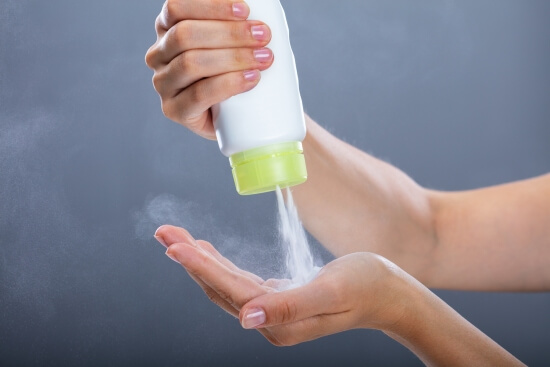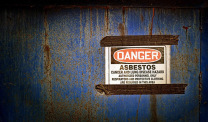Canada Moves Toward Increased Talc Restrictions
Asbestos Exposure & BansWritten by Tim Povtak | Edited By Walter Pacheco

Canada may soon become the first country to legally restrict the use of popular talc-based products, stemming from an extensive, recently completed human health assessment of the naturally occurring mineral.
Health Canada, the governmental agency responsible for national health policy, issued an official advisory in April, concluding that loose talc products – such as body powder, baby powder and genital deodorants – can cause serious lung problems and ovarian cancer.
The agency has proposed expanded restrictions on the use of talc in cosmetics, natural health products and nonprescription drugs that can be inhaled or used in the female genital area. It also intends to move talc onto the government’s official toxic substances list.
Its goal, according to the Health Canada advisory, is to lower all exposure to talc.
“Canada is the first country in the world to propose action to help manage the human health risks of talc,” the advisory stated.
Talc Safety Under Legal Scrutiny
Known as the softest mineral on Earth, talc was once used extensively in cosmetic and personal care items. It has come under intense scrutiny in recent years, stemming from thousands of talc lawsuits involving possible asbestos contamination.
Talc often is mined in proximity to asbestos, a toxic mineral that can lead to serious health problems, including lung cancer and malignant mesothelioma.
According to KCIC, a well-regarded legal consulting firm in Washington, D.C., a large majority of talc-product lawsuits in the U.S. involve ovarian cancer. It has accounted for awards worth an estimated $5 billion since the first case was filed in 2013.
This most recent Canadian advisory was not unexpected. Health Canada had previously restricted the use of talc in powder-based products for children. It also mandated warning labels to keep the product away from the faces of children to avoid any inhalation.
Major manufacturers throughout North America in the past few years have been dropping talc-based products. In 2020, pharmaceutical giant Johnson & Johnson said it was ending the sale of its iconic talc-based Johnson’s Baby Powder in the United States and Canada.
Johnson & Johnson, which said it is facing more than 25,000 lawsuits related to different talc products, has set aside almost $4 billion for future talc-related litigation, according to its most recent regulatory filings. The company also has a $2.1 billion appeal pending with the U.S. Supreme Court.
US FDA Action on Talc Expected Soon
Many other big-name cosmetics companies also have been distancing themselves from talc-based products and exploring talc alternatives. Although companies have continued to insist their products are safe because of in-house testing of talc, testing guidelines and testing sensitivity often become an issue.
In 2020, the U.S. Food and Drug Administration found asbestos contamination in nine of 52 cosmetic products tested in a year-long study.
Under current law, the FDA does not regulate – other than color additives – cosmetic and natural health products. There is a legal responsibility for companies to ensure the safety of their products, but in-house testing methods can vary. There are no mandated restrictions such as the ones being proposed in Canada today.
Potential legislation that could restrict the production of talc-based cosmetics has been discussed in various levels of Congress, but never come to fruition.
In the wake of the Canadian announcement, the FDA is expected to release its own updated recommendations this summer on testing methods for asbestos in talc products, which could lead to restrictions.
Canadian Study Focuses on Health Effects
The Health Canada final screening assessment of talc was a joint venture with Environment and Climate Change Canada, a government agency. It stressed its aim was not to explore or judge potential contaminates.
“This assessment focuses on health effects associated with cosmetic- and pharmaceutical-grade talc and not on potential impurities, such as asbestos,” the report states. “The cosmetic-grade talc used in the health effect studies cited in this assessment were considered to be free of asbestos.”
The final assessment found there were no health concerns from pressed-powder products, foot powder or dry shampoo, and no problem with ingesting products with talc, including food and natural health products.
It found no health issues with talc in paper, paint, ceramics, plastics or putties. It also found no harm to the environment.
It offered these suggestions for its citizens:
- Avoid inhaling loose talc powder
- Avoid female genital exposure to talc
- Read product labels and follow safety warnings
- Choose a talc-free alternative
Canadians who wish to provide feedback or recommendations on the proposed restrictions must do so before June 23.






